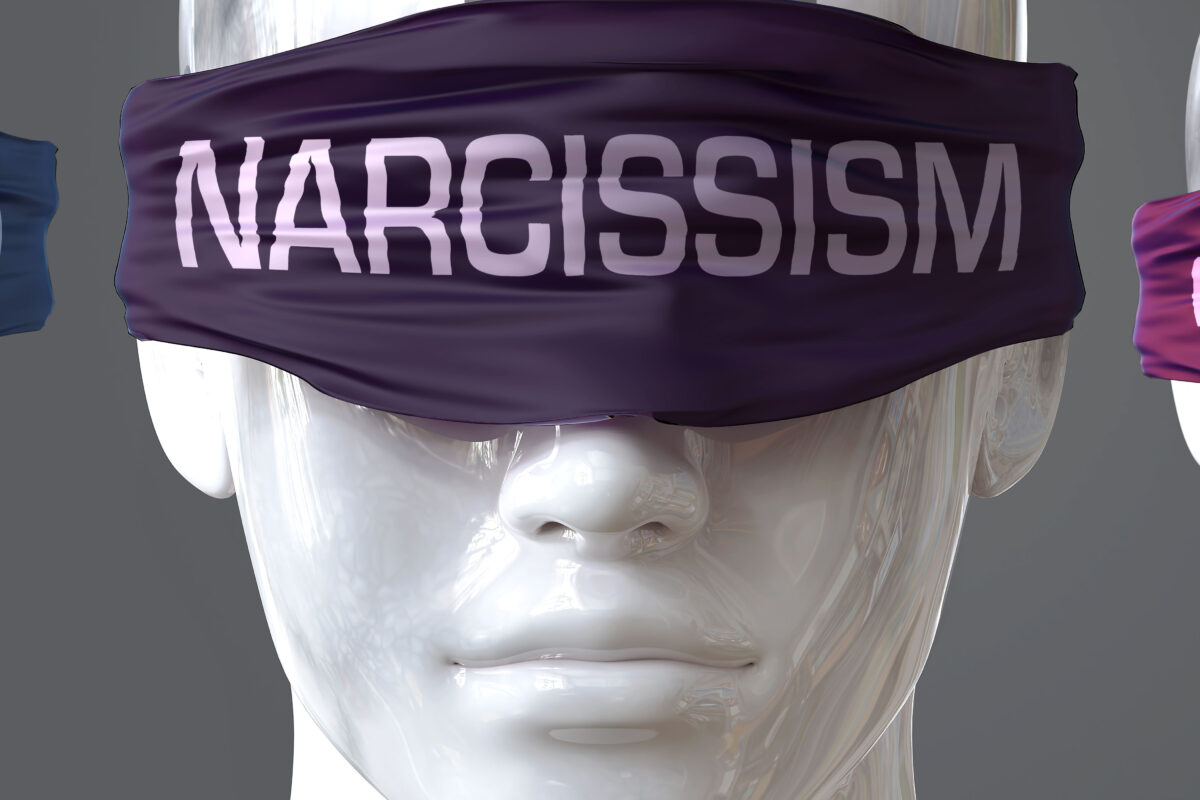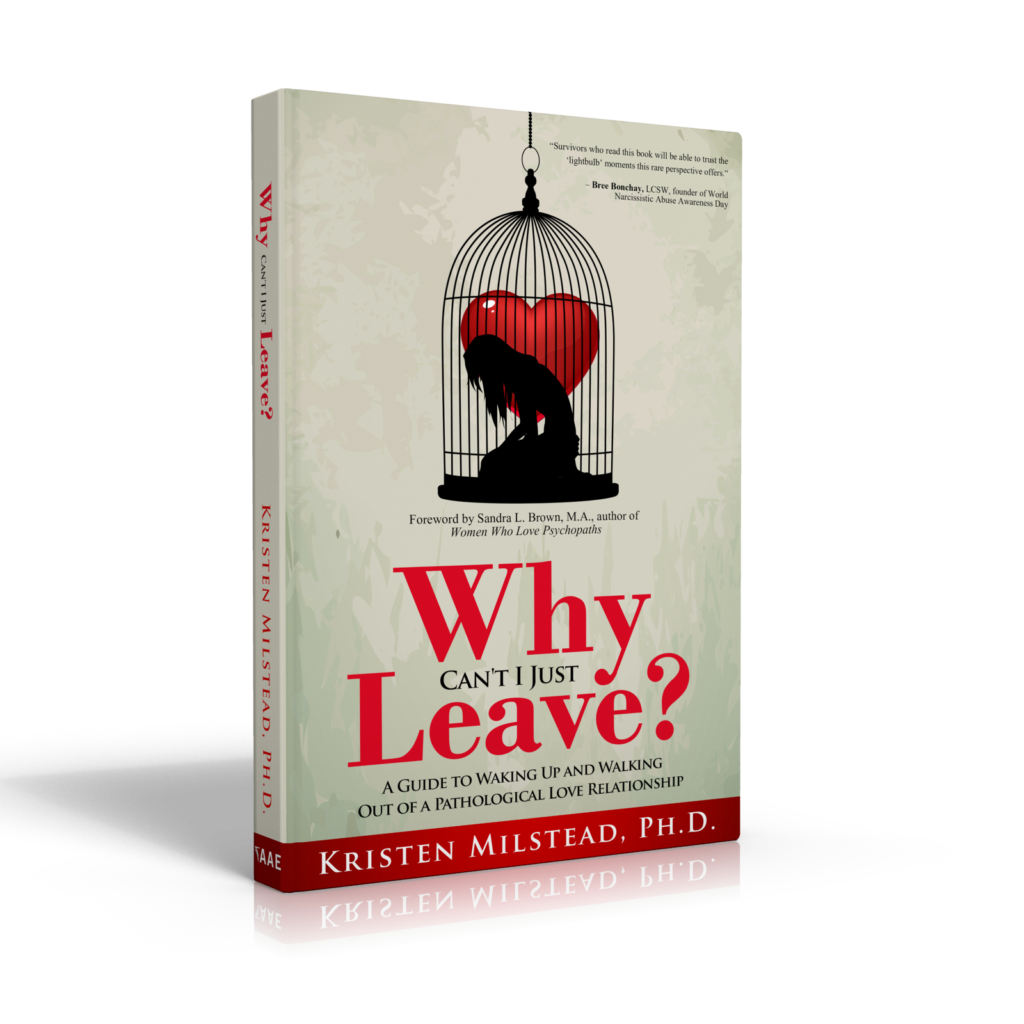Codependency is real. The link between narcissistic abuse and codependency, however, is a stereotype I’d like to dispel because it can be harmful.
More specifically, it’s a myth that all men or women that get into relationships across the board who have been in relationships with narcissists were codependent before they got there. It’s inaccurate and inappropriate for outsiders to apply that term to survivors simply because they have been abused by narcissists.
I’ve written about why at length. To recap, I described how the definitions of “codependency” are so broad and numerous that they ignore the special ways that narcissists abuse their victims by hiding their true character behind love-bombing.
In addition, narcissists can specifically target strengths of individuals that happen to overlap with some of the so-called characteristics of codependency if those characteristics are taken to excess or merely worded differently when we talk about them.
For example, someone may look for the good in other people, or have an easygoing temperament or be known as a caretaker, and have no issues in other areas of their lives. When taken advantage of by a narcissist, who sees these as opportunities to exploit, the traits that were in other instances seen as positive suddenly become “evidence” of codependency and low self-worth (“5 Questions for Your Narcissistic Abuse Recovery Program“).
Finally, a relationship with a narcissist may erode the boundaries and self-esteem of someone so that they do ultimately become codependent, however, there is no evidence to support the idea that being codependent is why they entered the relationship to begin with– especially when coupled with the idea that they were fooled by the idealization heaped upon them by the narcissist at the beginning of the relationship. And as Shahida Arabi says, once they have become attached, partners who stay in relationships with narcissists and find it difficult to leave are “trauma bonded.”
Yet it’s not just that the term can be inadequate as a whole to describe survivors of narcissistic abuse. What’s more important is that it can also be downright dangerous.
Why the Terms “Narcissist” and “Codependent” Can Be Dangerous When Used Together
1. Narcissists Blameshift as a Form of Psychological Abuse and Pathologizing Survivors Reinforces the Abuse.
Christine Hammond describes how narcissists flip the script in their relationships and convince themselves that they are justified in their abuse because they feel victimized by their partner’s reactions to what they do. They are blind to their own narcissism and fail to see their abusive actions as a catalyst and their partner’s reactions to their behavior as normal.
Narcissists continually use tactics such as gaslighting, blame-shifting, and stonewalling to condition their partners to believe that the relationship issues are their own fault. Thus, many survivors in the relationship are brainwashed by the narcissist to believe that they are to blame for their own abuse and they just need to try harder to get him or her to stop. (“5 Reasons Why Verbal Abuse is Not Your Fault“).
Calling partners “codependent” can trigger the same feelings of shame, helplessness, and defeat that are being or were manufactured in the relationship. It feeds into the narcissist’s narrative that something is wrong with the partner. It ignores the undue influence that the narcissist had on the partner that influenced the partner’s behavior, further lowering his or her self-esteem. The result can be paralyzing — making it difficult to leave or recover.
2. The Label “Codependent” Can Provide Survivors with a False Sense of Security.
The label can be potentially dangerous because a survivor who has only looked inward and hasn’t understood the special nature of narcissistic abuse can still be victimized again because narcissists con victims from the start about who they really are.
Jackson MacKenzie, author of Psychopath Free, writes, “Most of us have no problem spotting nasty people– we avoid them. But psychopaths present themselves as your mirror image. A soulmate. They quickly declare that no one has ever made them so happy in their life– they compare you to past exes, holding you high above everyone else. They sniff out your vulnerabilities, insecurities, and dreams. And based on their findings, they transform their entire personalities to become your perfect match.”
By encouraging survivors to focus on themselves and ignore how narcissists were able to abuse them in the first place, a survivor may not learn the warning signs or understand how the cycle perpetuates a bond that is difficult to break no matter who you are. Survivors may believe that if they only work on themselves, they can never be victimized again.
3. Pathologizing Survivors Perpetuates the Myth that Only Some People Are Susceptible to Narcissistic Abuse.
If survivors who have been victimized believe they need to “fix” themselves and they will be immune to narcissists, the public-at-large may be under the false impression that only certain people may be victimized.
Although it is true that narcissists may target people with certain characteristics that they find appealing, let’s talk about what that really means.
The National Coalition Against Domestic Violence states that “Anyone can be a victim of domestic violence. There is NO “typical victim.” Victims of domestic violence come from all walks of life, varying age groups, all backgrounds, all communities, all education levels, all economic levels, all cultures, all ethnicities, all religions, all abilities, and all lifestyles.”
This would seem especially to be the case with narcissistic abuse, given the deception involved. They can deceive anyone across any situation.
Robert Hare, one of the world’s leading experts on psychopaths says in his book Without Conscience, “Everyone, including the experts, can be taken in, manipulated, conned and left bewildered by them. A good psychopath can play a concerto on anyone’s heartstrings” (p. 207).
Narcissists will always look out for their own best interests, which means even though they may find certain characteristics appealing– characteristics that help them feel glorified– those characteristics fall on a spectrum. Their goal is to ensure that in the long run, they keep people around who will glorify them and discredit those who don’t, and they may constantly shuffle people in and out of their lives using a variety of tactics when people “fall out of favor.”
In short, they use manipulative tactics on everyone.
This extends beyond romantic relationships to friendships and in the workplace, but may be particularly damaging in romantic relationships.
This is because finances may be comingled, legal relationships such as marriages and property contracts may be formed, and children may be born, setting in motion seeds of destruction and abuse long before the true character of the narcissist is revealed to the partner who entered the relationship. The effects of those seeds may last a lifetime or extend into generations beyond the original survivor who entered the relationship.
Focusing on the survivor as pathological denies that this is a societal problem. It doesn’t take into account the various ways that narcissists move within their social circles manipulating and harming people in them to various degrees, such as by stealing from them, assaulting them, causing social drama or malignant harm through abuses of trust and lack of conscience.
Staying focused on the survivors of narcissistic abuse may make life feel more comfortable because it makes it seem as if it could never happen. Yet that mentality makes it easy for narcissists to keep hiding in plain sight, sliding under the radar, while we victim-blame as a society and they move from victim to victim, leaving behind a trail of destruction.
How to Use the Term Codependent Effectively
I’ve made it no secret that I find the term “codependent” problematic, as it is used in general by many in its application to survivors as a whole. I find it unhelpful, even potentially detrimental in a lot of cases.
There are times when it can be useful, however. Given the literature on the topic and the many people who find its affirmations and descriptions beneficial, the circumstances when I think it can be useful are when the label is applied:
- individually and not categorically to survivors as a whole;
- by an individual to himself or herself and not by an outsider, or if in conjunction with someone else, if the individual is in agreement that the term seems applicable to his or her experiences;
- therapeutically when the focus is on healing certain aspects of the self that extend beyond personality characteristics and not merely for explanatory purposes;
- in conjunction with understanding the abuser and the dynamics of the abuse as a whole.
Understanding the dynamics of the abuse as a whole can set the stage for understanding the entirety of the damage that was done so that the healing from the trauma can be thorough enough not only to understand the past, but to set the stage for healthy relationships in the future.
Want more? Get more articles like this one delivered straight to your inbox.
Sources
Arabi, S. (2017, May 10). Abuse Victims Are Not Codependent, They’re Trauma-Bonded. Retrieved February 13, 2019, from https://www.huffingtonpost.com/entry/abuse-victims-are-not-codependent-theyre-trauma-bonded_us_581cfc1de4b0334571e09b49
Hammond, C. (2018). The Narcissistic Cycle of Abuse. Psych Central. Retrieved on February 12, 2019, from https://pro.psychcentral.com/exhausted-woman/2015/05/the-narcissistic-cycle-of-abuse/
Hare, R. (1999) Without Conscience. The Guilford Press.
MacKenzie, J. (2015). Psychopath Free. Berkley.
Milstead, K. (2018, November 5). 5 Questions For Your Narcissistic Abuse Recovery Program | Fairy Tale Shadows. Retrieved February 13, 2019, from https://fairytaleshadows.com/2018/11/05/questions-narcissistic-abuse-recovery-program/
National Coalition Against Domestic Violence. (n.d.). Dynamics of Abuse. Retrieved February 13, 2019, from https://ncadv.org/dynamics-of-abuse






2 Comments
Kristen Milstead
Hi Reet: Thank you for leaving a comment. I’m glad you feel confident in defining your own story– I don’t feel there is a need to take on labels that don’t seem to define us. And I agree with you– it doesn’t mean seeing “codependent” as bad, just not necessarily accurate in all situations. I hope you are doing better these days and are on your way to recovery. Stay strong! -Kristen
Reet
Thank again Kristin
It makes so much sense to me.
I am both easy going and a caretaker.
He love bombed and lied while putting on a fake smile.
I never identified with the codependent mainly because I have lived my life independently I have had a son with kidney disease since he was 8 and spent yrs in and out of hospital. I worked at a high school while doing a full time degree,I have 3 grown children.
And then I got ME and I have been quiet poorly for a decade,not relying on a soul. He was my 1st relationship in a decade.
I was so far from being able to depend on a single soul
So I don’t see codependent as negativity it’s just doesn’t fit into my story.